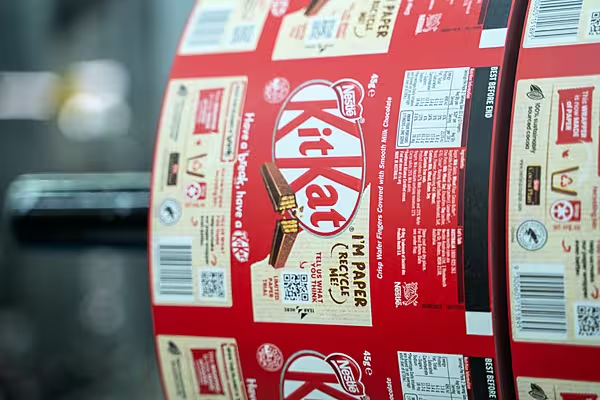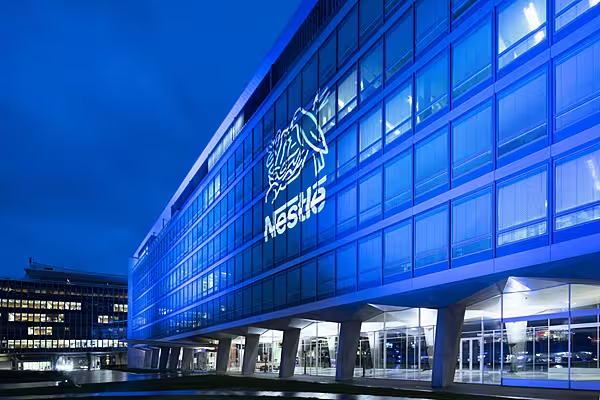Nestlé has reported full-year organic sales growth slightly below expectations, as the world's biggest packaged food company continued to hike prices, prompting some shoppers to turn to competing brands.
The Swiss firm also said it expects organic sales growth of around 4% in 2024, and a "moderate increase" in its underlying trading operating profit (UTOP) margin. The 2023 UTOP margin was 17.3%, up by 40 basis points in constant currency.
Organic sales, which exclude the impact of currency movements and acquisitions, rose 7.2% in the year ended December 31, the maker of Maggi stock cubes and Nescafe coffee said. Analysts had, on average, expected organic sales growth of 7.4%.
'A Disappointing Note'
"Nestlé finishes the year on a disappointing note," Bernstein analyst Bruno Monteyne said. "Guidance for 2024 organic growth of 4.0% is below current consensus of 4.9%, and guidance for a moderate margin increase may put pressure on the current (margin) consensus of 17.7%."
However, the Swiss firm's net profit rose sharply by about 20% to CHF 11.2 billion (€11.75 billion)
The packaged goods industry has for over two years hit shoppers with higher prices, citing higher input costs that started with the COVID-19 pandemic and were exacerbated by Russia's invasion of Ukraine. Everything from sunflower oil to freight has become more expensive, taking a toll on global supply chains.
Pricing Strategy
This quarter, however, companies have said 2024 prices will rise at a much slower rate.
"Pricing will be a lot lower this year than last year," Nestlé CEO Mark Schneider said on a call with journalists. "Growth going forward this year is going to be a lot more volume and mix based."
Full-year sales fell by 1.5% to about CHF 93 billion (€97.6 billion), missing estimates of CHF 93.68 billion.
Nestlé's full-year 7.5% price increases met the average analyst estimate. Real internal growth - or sales volumes - for the period fell 0.3% versus expectations of a 0.1% decline.
Sales volumes in the fourth quarter turned positive, rising 0.4%.
Rival packaged food company Unilever, which slowed price hikes notably in the fourth quarter, also reported a return to higher volumes for that period.
Investors and analysts have raised concerns that companies are pushing price rises too far and recommended that they focus more on marketing and innovation, amid a cost of living crisis that is seeing retailers' private label brands stealing market share.
Analyst Viewpoint
Commenting on Nestlé's performance, Danni Hewson, head of financial analysis at AJ Bell, said, “Price hikes over the past year have helped bolster the company’s profits but like many of its contemporaries that’s come at the expense of customers.
“Shares tumbled as investors fretted that shoppers have got used to trading down and will be hard to woo back without some pretty chunky discounting.
“Even if prices are slashed, new habits have been formed and even as people hopefully start to enjoy a bit more disposable income, they might still feel reluctant to return to those named brands that many consumers feel left them behind.
“Rival Unilever is already working hard on delivering value added to its products, making its offering work harder and delivering that X-factor that makes the price worth stretching for.
“There are understandable concerns that prices have been pushed too far in order to safeguard profitability. This is a delicate balance that some investors fear big consumer giants have failed to strike.”














